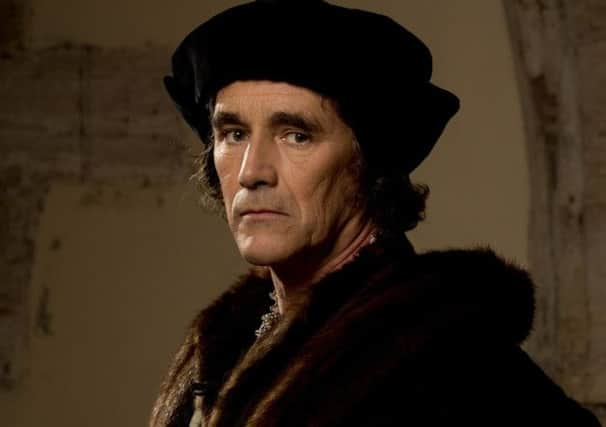Can the BBC’s Wolf Hall ever be as good as the book?


Stephen King was famously nonplussed by director Stanley Kubrick’s big screen version of his best-selling novel The Shining and he’s not the only author to have found the adaptation process a little painful.
Roald Dahl openly disliked the Hollywood version of Charlie and the Chocolate Factory and Ernest Hemingway was even harder to please. The Farewell to Arms author apparently disliked every one of the dozen or so adaptations of his novels.
Advertisement
Hide AdAdvertisement
Hide AdSo the team behind the six part adaptation of Wolf Hall and Bring Up the Bodies must have breathed a sigh of relief when they met author Hilary Mantel who was more than happy to see her epic historical novel transferred to TV.
“As you write, you see and hear,” says the Booker Prize winner. “To have the images transferred to the outside world, to hear the voices externally is a kind of magic, but it’s also a logical step because the play or film already exists inside you. That art is to work with people who can help you put it where others can share it.”
With Wolf Hall having previously been turned into a play, Mantel was au fait with the adaptation process when it came to working with screenwriter Peter Straughan on bringing the court of Henry VIII to the small screen.
“It’s a fundamental belief of mine that good drama doesn’t have to be bad history,” says Mantel, a graduate of the University of Sheffield. “It’s true that history is never a convenient shape, but if you have the craft and the will to do it, you can find a way to tell a good story without distortion.
Advertisement
Hide AdAdvertisement
Hide Ad“At our first meeting I became aware that Peter understood the books very well. By what seemed a miracle, he hit the tone of the novels with his first draft and he sustained it. There’s a huge difference between the dialogue in a novel and the dialogue in a film.
“Bits and pieces transfer happily and I was pleased to learn that cast members had often requested lines from the original. But Peter and I think alike: we want less, always less. A glance, a blink, a smile, will carry the story on film. What dialogue remains should be pared down to spare elegance.”
The first two books in a trilogy charting the rise and fall of the king’s advisor Thomas Cromwell has been directed by Peter Kosminsky, whose previous credits include The Government Inspector, based on the life of Dr David Kelly, who found himself caught in the crossfire between Number 10 and the BBC over the war in Iraq.
“He’s a political animal as I am,” says Mantel. “He knows how politics plays in human terms and he doesn’t patronise the characters, he doesn’t think they are cute because they are Tudor. He knows that they are enacting their own lives, the only lives they have , urgently, joyfully, bitterly, without foreknowledge, ignorant of what’s around the corner. He knows that our past is their present.”
Advertisement
Hide AdAdvertisement
Hide AdWhile Mantel deliberately stepped away from the project when filming began she did manage a couple of set visits and was pleased to find that as with her novels, the devil was in the detail.
“I was staggered by the scale of the enterprise, it was like a royal progress,” she says. “There seemed to be something very appropriate about the way it lumbered across the countryside, stopping at the most beautiful houses and I spent a fascinating hour or two in the costume trailers.
“The leather was aged, the fabrics were specially woven - even the pins were handmade to an authentic pattern and my husband now carries one around in his wallet as a sort of talisman. Pins held the Tudors together and there’s no doubt there was an unseen army at work behind the scenes, on every aspect of production, and I owe them a debt of gratitude.”
Wolf Hall begins on BBC2 on Jan 21.